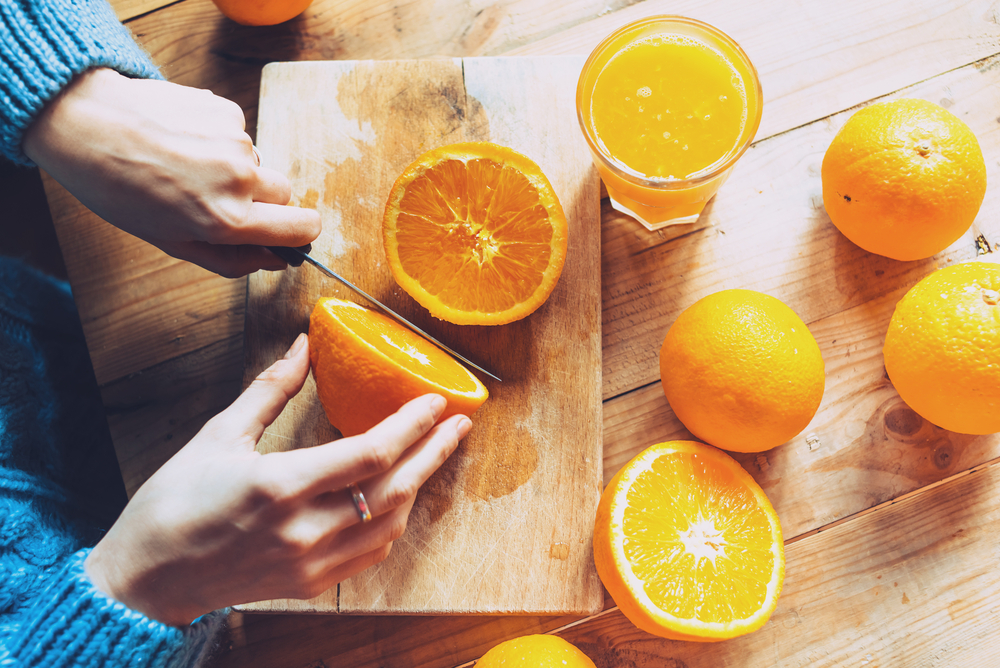Did you know that attending frequent eye exams isn’t the only way you can care for your eyes? You can help keep your eyes healthy through dietary changes as well.
Deciding what foods to eat is one of the most critical choices you make every day. Eating a well-balanced, nutritious diet is vital to maintaining your overall health, including the health of your eyes.
Keep reading to learn more about if the foods you eat are important for eye care and how that can help your vision!
Nutrition and Eye Health

Studies have shown that the foods you eat can play a significant role in keeping your eyes healthy. The nutrients found in certain foods can promote overall eye health, and some may lower the risk of certain eye conditions.
Additionally, adopting a heart-healthy diet rich in fruits, vegetables, and whole grains and reducing how much saturated fat you consume helps the arteries around your heart and the arteries in the eyes. The tiny arteries in your eyes provide vital oxygen and nutrients.
What are the Best Foods for Promoting Healthy Eye Care?
Are you wondering which foods are the best at promoting healthy eyes? Here’s a list of the foods to include in your eye-healthy diet:
Orange-Colored Fruits and Vegetables
Orange-colored fruits and vegetables, like carrots, sweet potatoes, cantaloupes, and apricots, are rich in vitamin A. Vitamin A is arguably the most essential nutrient for eye health and function. Eating just one sweet potato can provide 200% of the daily recommended vitamin A dose.
Vitamin A is vital to producing pigments that allow the retina to turn light rays into vivid images. A deficiency in vitamin A can lead to night blindness as the retina struggles to discern color differences.
This vitamin also contributes to the quantity and quality of tears. Eating foods rich in vitamin A can help prevent dry eye and protect the cornea.
In addition to carrots and the other foods mentioned above, winter squashes are also good sources of vitamin A. Squashes like butternut and acorn are low in fat and calories but extremely rich in nutrients.
Citrus Fruits and Other Foods High in Vitamin C

Oranges, lemons, limes, and grapefruit are some of the citrus fruits that are good sources of vitamin C. Vitamin C is an antioxidant that helps protect the eyes from free radicals.
Free radicals can damage ocular cells and increase the risk of eye conditions. Environmental factors, like exposure to UV light, and lifestyle choices, like smoking and eating fried foods, can produce free radicals.
As an antioxidant, vitamin C helps to repair damaged tissue and boosts the growth of new tissue cells. Antioxidants have been shown to help prevent or delay age-related eye conditions, including macular degeneration and cataracts.
Citrus fruits are not the only source of vitamin C. It can also be found in peaches, red bell peppers, tomatoes, and strawberries.
Nuts and Seeds with Vitamin E
Nuts and seeds are a great source of vitamin E, another important antioxidant. Vitamin E protects the eyes from free radicals. Like vitamin C, it may be able to delay or prevent certain age-related eye conditions.
Almonds, walnuts, cashews, and Brazil nuts contain the highest vitamin E. Additionally, seeds like chia, flax, and sunflower contain healthy amounts of vitamin E.
Nuts and seeds are not the only good sources of vitamin E. You can also find vitamin E in avocadoes, kiwis, mangoes, and spinach.
The next time you want to whip up a smoothie, consider using some of these eye-healthy ingredients!
Cold-Water Fish
The omega-3 fatty acids found in oily fish provide essential nutrients for moist, healthy eyes. They are known to aid in healthy tear production and may reduce the risk of developing certain eye conditions later in life.
Oily fish like tuna, sardines, cod, mackerel, and salmon have the highest levels of omega-3 fatty acids. Unlike other nutrients contributing to healthy eyes, omega-3 supplements can offer comparable benefits to actual consumption.
Eating cold-water fish can be particularly beneficial for people with dry eyes. Omega-3 fatty acids can reduce ocular inflammation, inhibiting the eye’s ability to produce lubricating, high-quality tears.
Leafy Green Vegetables

Leafy green vegetables, like spinach, kale, and Swiss chard, help care for the eyes by providing the antioxidants lutein and zeaxanthin. These antioxidants work to protect the macula, the structure in the eye responsible for central vision.
Lutein and zeaxanthin filter harmful ultraviolet rays and blue light from entering the eye and prevent the formation of free radicals. Just as sunblock can help prevent premature skin aging, lutein and zeaxanthin may prevent premature aging of the eyes.
While leafy green vegetables can be the best source of these antioxidants, they can also be found in broccoli, green peas, and eggs.
Legumes
The zinc found in many legumes or beans helps create melanin, protecting the eyes from UV light. Like lutein and zeaxanthin, zinc may prevent premature aging and age-related eye conditions.
Beans that contain zinc include chickpeas, black-eyed peas, kidney beans, and lentils. Healthy quantities of zinc can also be found in poultry, red meat, and oysters.
While you might already enjoy many foods necessary for eye care, you can optimize your eye health and vision by including more! Simple additions to your meals, like sunflower seeds on a salad or sautéed greens as a side with your salmon, are delicious and good for your eyes!
Do you want to learn more about how to help protect your eyes through your diet? Schedule an appointment at Batra Vision in San Leandro, CA, today!

 Follow Us!
Follow Us!